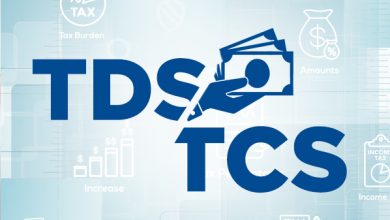The Definitive Guide To Property Tax Advisors: Expert Tips For Maximum Savings

Understanding Property Taxes
Property taxes are a major expense for homeowners and property investors alike. They are levied by local governments to fund public services such as schools, roads, and emergency services. Understanding how property taxes work is essential for homeowners and investors to effectively manage their expenses and maximize savings.
What are property taxes?
Property taxes are taxes paid on the assessed value of real estate properties. The amount of tax owed is determined by multiplying the assessed value of the property by the local tax rate.
How are property taxes calculated?
Property taxes are calculated based on the assessed value of the property, which is determined by the local tax assessor. The assessed value is typically a percentage of the property’s market value, taking into account factors such as improvements, location, and market conditions. The local tax rate is then applied to the assessed value to determine the amount of taxes owed.
Why are property taxes important?
Property taxes play a crucial role in funding local government services and infrastructure. They are an ongoing expense that property owners must budget for. Understanding property taxes is important for homeowners and investors to manage their finances effectively and ensure they are not paying more than their fair share.
Benefits of Hiring a Property Tax Advisor
Hiring a property tax advisor can provide numerous benefits for homeowners and investors looking to minimize their property tax liabilities and maximize their savings.
How can a property tax advisor help you?
A property tax advisor is a professional who specializes in property tax assessment and valuation. They have in-depth knowledge of local tax laws and regulations and can help homeowners and investors navigate the complex property tax system. A property tax advisor can review your property tax assessments, identify any errors or discrepancies, and help you file appeals if necessary. They can also provide advice on strategies to reduce your property tax liabilities, such as taking advantage of available exemptions and deductions.
Maximizing savings with a property tax advisor
By working with a property tax advisor, homeowners and investors can potentially save hundreds or even thousands of dollars on their property tax bills. A property tax advisor can help ensure that your property is accurately assessed, taking into account factors that could potentially lower its value and, therefore, reduce your tax liability. They can also help you identify and take advantage of any applicable exemptions or deductions that could further reduce your tax burden.
The advantages of professional advice
Property tax laws and regulations can be complex and vary from jurisdiction to jurisdiction. By hiring a property tax advisor, you gain access to their expertise and knowledge of local tax laws. They can help you navigate the often-confusing world of property taxes and ensure that you are in compliance with all applicable laws and regulations. Additionally, a property tax advisor can save you time and effort by handling all the paperwork and communication with tax authorities on your behalf.
Tips for Finding the Right Property Tax Advisor
Finding the right property tax advisor is crucial to maximizing your savings and ensuring that your property tax affairs are handled effectively. Here are some tips to help you find the right property tax advisor for your needs.
Qualities to look for in a property tax advisor
When searching for a property tax advisor, it’s important to consider their qualifications and experience. Look for a licensed professional with a proven track record in property tax assessment and appeals. It’s also important to find an advisor who is knowledgeable about local tax laws and regulations and has experience working with clients in your area. Good communication skills and a client-focused approach are also important qualities to look for in a property tax advisor.
Where to find reputable property tax advisors
There are several places to find reputable property tax advisors. Start by asking for recommendations from friends, family, or colleagues who have used property tax advisors in the past. You can also check with your local Chamber of Commerce or professional organizations such as the National Association of Property Tax Professionals. Online directories and review websites can also be a valuable resource for finding reputable property tax advisors in your area.
Questions to ask potential property tax advisors
When interviewing potential property tax advisors, it’s important to ask the right questions to ensure they are the right fit for your needs. Some key questions to consider asking include:
- How long have you been working as a property tax advisor?
- Can you provide references from past clients?
- What is your success rate in appealing property tax assessments?
- What is your fee structure?
- Are you familiar with the local tax laws and regulations in my area?
Strategies for Maximizing Property Tax Savings
When it comes to maximizing property tax savings, there are several strategies homeowners and investors can employ. Understanding exemptions, optimizing the property assessment process, and appealing property tax assessments are key strategies to consider.
Understanding exemptions and deductions
One of the most effective ways to reduce your property tax liability is to take advantage of available exemptions and deductions. These can vary depending on your jurisdiction but may include exemptions for seniors, veterans, or individuals with disabilities. Deductions for home improvements that increase energy efficiency or improve accessibility may also be available. It’s important to research and understand the exemptions and deductions that may be applicable to your property and to ensure that you take full advantage of them.
Optimizing the property assessment process
The property assessment process is the foundation for determining your property tax liability. It’s important to ensure that your property is accurately assessed, taking into account factors that may lower its value. This may include factors such as structural issues, outdated features, or unfavorable location. Working with a property tax advisor can help ensure that the assessment accurately reflects the true value of your property and may result in a lower tax bill.
Appealing property tax assessments
If you believe that your property has been over-assessed or that errors have been made in the assessment process, you have the right to appeal. The appeals process can vary depending on your jurisdiction, but typically involves providing evidence to support your claim. Working with a property tax advisor can greatly increase your chances of a successful appeal. They can help gather the necessary evidence, prepare the appeal documents, and present your case to the appropriate authorities.
By understanding property taxes, working with a property tax advisor, and employing strategies to minimize your tax liability, you can maximize your savings and ensure that you are not paying more than your fair share. Property taxes may be a significant expense, but with the right knowledge and guidance, you can effectively manage them and keep more money in your pocket.
FAQ
Question: What is a property tax advisor? – A property tax advisor is a professional who specializes in property tax assessment and valuation. They have in-depth knowledge of local tax laws and regulations and can help homeowners and investors navigate the complex property tax system. They can review property tax assessments, identify errors or discrepancies, and help file appeals if necessary. They also provide advice on strategies to reduce property tax liabilities.
Question: How can a property tax advisor help maximize savings? – By working with a property tax advisor, homeowners and investors can potentially save hundreds or even thousands of dollars on their property tax bills. Property tax advisors ensure accurate property assessments, consider factors that could lower property value, and identify applicable exemptions or deductions to reduce tax burden.
Question: What qualities should I look for in a property tax advisor? – When searching for a property tax advisor, it’s important to consider their qualifications and experience. Look for a licensed professional with a proven track record in property tax assessment and appeals. Find an advisor who is knowledgeable about local tax laws and regulations and has experience working with clients in your area. Good communication skills and a client-focused approach are also important qualities.
Question: Where can I find reputable property tax advisors? – Start by asking for recommendations from friends, family, or colleagues who have used property tax advisors in the past. Check with your local Chamber of Commerce or professional organizations such as the National Association of Property Tax Professionals. Online directories and review websites can also be valuable resources for finding reputable property tax advisors.
Question: What questions should I ask potential property tax advisors? – When interviewing potential property tax advisors, ask about their experience, success rate in appealing property tax assessments, and fee structure. Also, inquire about their familiarity with local tax laws and regulations in your area. Request references from past clients to better evaluate their services.
Question: How do exemptions and deductions help reduce property tax liability? – Exemptions and deductions can be used to reduce property tax liability. These vary depending on your jurisdiction and may include exemptions for seniors, veterans, or individuals with disabilities. Deductions for home improvements that increase energy efficiency or improve accessibility may also be available. Research and understand the exemptions and deductions applicable to your property to take full advantage of them.
Question: How can the property assessment process be optimized to lower tax bills? – Working with a property tax advisor can help ensure that the property assessment accurately reflects the true value of your property, which may result in a lower tax bill. Factors such as structural issues, outdated features, or unfavorable location can be considered during the assessment process to potentially reduce property value and tax liability.
Question: How can I appeal a property tax assessment? – If you believe your property has been over-assessed or errors have been made in the assessment process, you have the right to appeal. The appeals process varies depending on your jurisdiction but typically involves providing evidence to support your claim. Working with a property tax advisor can greatly increase your chances of a successful appeal by helping gather necessary evidence, preparing appeal documents, and presenting your case effectively.
Useful Resources
- Internal Revenue Service (IRS)
- National Association of Property Tax Professionals
- Chamber of Commerce
- Zillow
- com
- Investopedia
- Nolo
- LegalZoom




